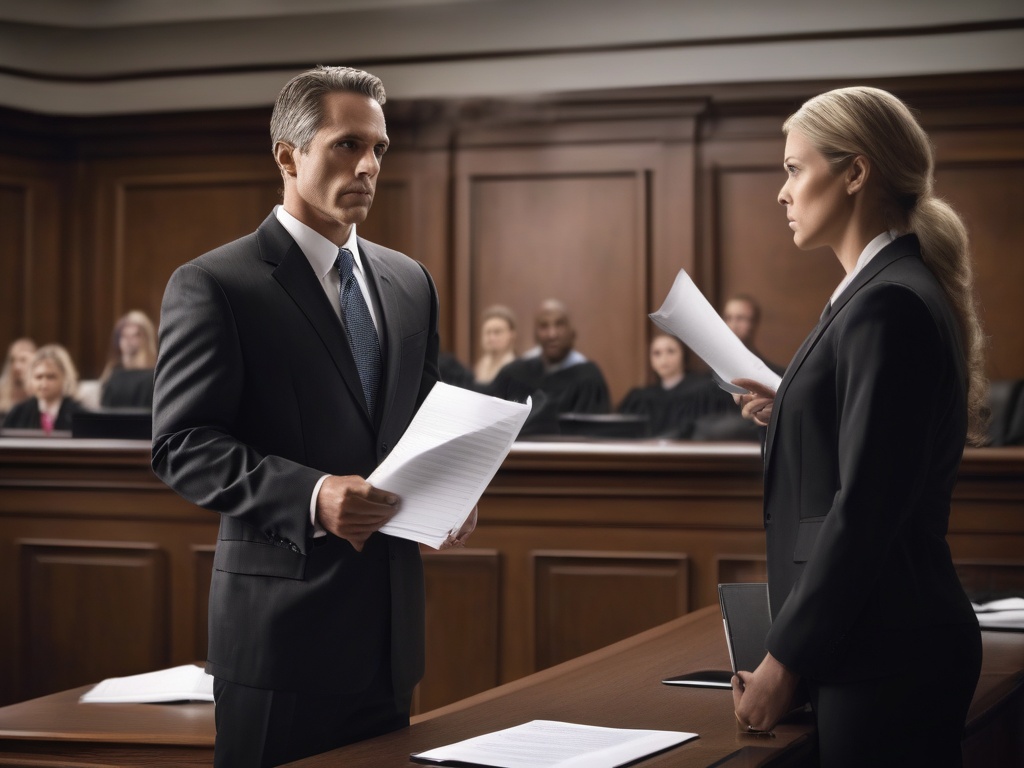
Unveiling the Art of Challenging DUI Evidence: Strategies That Win Cases
In the high-stakes arena of DUI litigation, understanding how to effectively challenge the evidence presented by prosecutors can be the difference between a conviction and an acquittal. Defendants and their attorneys must go beyond mere denial; they need to dissect each piece of evidence, scrutinizing its validity, accuracy, and adherence to legal standards. This approach transforms the courtroom into a battleground where meticulous strategy and expert knowledge can dismantle seemingly irrefutable evidence, such as breathalyzer results and field sobriety tests.
One of the most common and persuasive forms of DUI evidence is the blood alcohol concentration (BAC) level obtained through breathalyzer or blood tests. However, these tests are not infallible. Challenging their accuracy involves examining calibration records, maintenance logs, and testing procedures to identify potential flaws or errors. An attorney might argue that the device was improperly calibrated, that environmental factors influenced the reading, or that the sample was contaminated. By casting doubt on the reliability of these tests, defense teams can significantly weaken the prosecution’s case, sometimes leading to the suppression of crucial evidence.
Field sobriety tests (FSTs) are often used to establish probable cause for arrest. Yet, these tests are highly subjective and susceptible to external influences such as weather, medical conditions, or even the officer’s interpretation. Skilled defense attorneys focus on exposing these vulnerabilities, highlighting inconsistencies, improper administration, or environmental factors that could distort results. Additionally, challenging the credibility of arresting officers’ observations and reports can cast further doubt, emphasizing that the evidence was gathered without proper procedure or reasonable suspicion. Such strategic challenges can lead to the exclusion of key evidence and bolster a defendant’s chance of case dismissal or reduction.
Mastering Legal Loopholes and Procedural Flaws to Defend Against DUI Charges
In the complex landscape of DUI defense, recognizing and exploiting procedural errors and legal loopholes can be pivotal in securing a favorable outcome. Skilled attorneys meticulously scrutinize every stage of the arrest process, from initial stop to evidence collection, to identify violations of constitutional rights or procedural missteps. These flaws, if uncovered, can lead to suppression of evidence or even case dismissal, making them a powerful weapon in the defense arsenal.
One of the most effective strategies involves examining the legality of the traffic stop itself. If law enforcement officers lacked reasonable suspicion to initiate the stop, any evidence obtained as a result may be deemed inadmissible. Challenging the basis for the stop requires a detailed review of police reports, dashcam footage, and witness statements to verify whether the arresting officers followed proper protocols. Additionally, any deviation from established procedures—such as improper use of field sobriety tests or failure to inform the suspect of their rights—can be leveraged to undermine the prosecution’s case. The goal is to create a procedural breach that questions the legitimacy of the arrest, often leading to crucial evidence being thrown out, thereby weakening the overall case against the defendant.
Another critical area involves the chain of custody and handling of evidence. Any lapse in maintaining a strict chain of custody—such as mishandling blood or breath samples, or lapses during transportation and storage—can be grounds for challenging the integrity of the evidence. Defense attorneys rigorously examine laboratory logs, testing procedures, and certification records to identify potential contamination or procedural errors. When the reliability of key evidence, like BAC results, is compromised, it can cast significant doubt on the prosecution’s claims and open avenues for case suppression. Mastery of these procedural nuances allows defense teams to turn the tables, transforming minute technicalities into decisive victories in DUI litigation.
Innovative Defense Tactics: Leveraging Technology and Expert Testimonies to Outmaneuver DUI Accusations
In the rapidly evolving landscape of DUI defense, staying ahead requires more than traditional courtroom strategies. Attorneys are increasingly turning to cutting-edge technology and specialized expert testimonies to challenge the prosecution’s evidence effectively. These innovative tactics not only bolster the defense but also introduce a new level of precision and credibility that can significantly influence case outcomes. In 2024, leveraging these advanced tools has become indispensable for defendants seeking to dismantle DUI allegations that once seemed airtight.
Modern DUI defenses are now underpinned by sophisticated data analysis tools that scrutinize the minutiae of evidence collection and testing procedures. For example, forensic experts utilize state-of-the-art calibration software and environmental analysis to demonstrate how external factors might have skewed breathalyzer or blood alcohol readings. These experts can also analyze digital logs from testing devices, exposing inconsistencies or tampering that could invalidate results. By presenting detailed forensic reports, defense attorneys can cast doubt on the reliability of the prosecution’s primary evidence, often leading to the suppression of crucial BAC data. This approach transforms technical minutiae into compelling arguments, shifting the courtroom battle from a straightforward confrontation to a nuanced contest of scientific credibility.
In 2024, the strategic use of expert witnesses has become a game-changer in DUI litigation. Skilled forensic toxicologists, medical professionals, and even technology specialists provide critical insights that challenge the assumptions behind the prosecution’s evidence. These experts can, for instance, testify about the limitations of field sobriety tests, the potential for false positives in breathalyzer results, or the procedural errors during evidence collection. Their testimony adds a layer of scientific authority and objectivity, often persuading judges and juries to view the evidence with skepticism. Moreover, expert witnesses can help identify biases, procedural lapses, or technical flaws that might otherwise go unnoticed, creating a formidable barrier for the prosecution’s case. This intersection of technology and expert insight exemplifies the innovative spirit of modern DUI defenses, turning scientific rigor into a strategic advantage.
